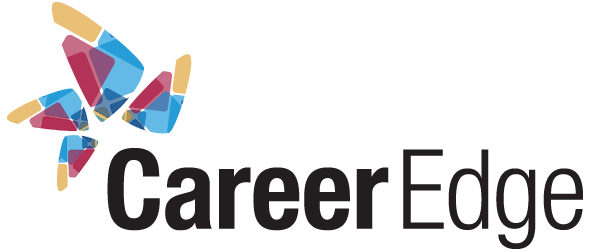
While Canada’s voting laws apply broadly to all employees, certain employment arrangements present unique considerations. This guide addresses specific scenarios and special employment categories to ensure everyone understands their voting rights, regardless of employment situation.
Interns: Your Complete Voting Rights Guide
Legal Status of Interns
Both paid and unpaid interns have the same voting rights as traditional employees. The Canada Elections Act makes no distinction based on compensation or formal employment status.
Key Points for Interns
- Your Legal Entitlement
- You are entitled to three consecutive hours during polling hours
- Your internship provider cannot deduct pay (if applicable) for time off to vote
- Your academic standing cannot be affected by taking time to vote
- Academic Considerations
- If your internship is part of an academic program, voting rights supersede program requirements
- Time missed for voting cannot be counted against the attendance requirements
- Academic supervisors and workplace supervisors should be notified separately
- Documentation for Unpaid Interns
- Keep written records of time-off requests
- Document any conversations regarding voting accommodations
- Consider copying both workplace and academic supervisors on requests
Sample Request Template for Interns
Dear [Supervisor’s Name],
I am writing regarding the upcoming [federal/provincial] election on [date]. As an intern at [Organization], I would like to request time off to vote in accordance with the Canada Elections Act.
My current schedule at [Organization] is [start time] to [end time], and the polling hours are [start time] to [end time]. To ensure I have the legally required three consecutive hours to vote, I am requesting [specific accommodation].
I understand that this time off is to be provided without loss of [pay/academic standing]. Please let me know if you need any additional information.
Thank you for your attention to this matter.
Sincerely,
[Your Name]
Common Questions for Interns
- Q: Does my unpaid status affect my right to vote?
A: No. Paid and unpaid interns have identical rights to voting time. - Q: Who should I notify if my internship is through a school program?
A: Notify both your workplace supervisor and academic advisor. - Q: Can taking time to vote affect my internship evaluation?
A: No. It is illegal to penalize anyone for exercising their voting rights.
Contractors and Gig Workers
Independent Contractors
- Not technically covered by employee voting rights
- However, may negotiate time off in contracts
- Should schedule work accordingly around elections
Gig Economy Workers
- Rights depend on legal employment classification
- Those classified as employees have standard voting rights
- Platform-based workers should check platform-specific policies
- Plan work schedules in advance of election day
Self-Employed Professionals
- Responsible for managing own schedules
- No specific legal protections
- Consider notifying clients in advance of potential election day unavailability
Remote and Flexible Workers
Work-from-Home Employees
- Same rights as in-office workers
- Entitlement based on scheduled working hours
- Employer must still provide the required consecutive hours
Flexible Schedule Workers
- Rights apply based on scheduled hours on election day
- Document your typical work hours if they vary
- Request accommodation if your flexible schedule doesn’t allow voting time
Cross-Time Zone Considerations
- Rights based on polling hours in your voting district
- Special considerations for employees working in different time zones from their employers
- Sample language for remote workers:
Dear [Manager’s Name],
Regarding the upcoming election on [date], I’m writing to clarify my voting time accommodation as a remote employee.
Although I work remotely, I’m registered to vote in [location] where polling hours are [start time] to [end time]. My current work schedule is [start time] to [end time] in [my time zone].
To ensure I have the legally required three consecutive hours to vote, I’m requesting [specific accommodation]. I understand this time is to be provided without loss of pay.
Thank you for your consideration.
Sincerely,
[Your Name]
Shift Workers
Night Shift Employees
- Special considerations for overnight and extended shifts
- Options include beginning shift late or ending early
- Example scenarios:
Night Before Election Day:
- If you work 11:00 p.m. to 7:00 a.m. and polls open at 8:30 a.m., you may need to end your shift early to have three consecutive hours to vote
Election Day Night Shift:
- If you work 11:00 p.m. to 7:00 a.m. and polls close at 8:30 p.m., you should have time to vote before your shift
Rotating Shift Employees
- Accommodations based on your assigned shift on election day
- Request schedule adjustments in advance if possible
- Maintain documentation of your rotating schedule
Extended Shift Workers
- Healthcare, emergency services, and essential workers
- 12+ hour shift considerations
- Planning strategies for long-shift employees
Multiple Jobs and Part-Time Employment
Working Multiple Part-Time Jobs
- Each employer has an independent obligation
- Strategize which employer to approach based on your full schedule
- Document all employment schedules when making requests
Sample Multiple-Job Request
Dear [Manager’s Name],
I’m writing regarding the upcoming election on [date]. As you know, I work part-time at [Company] from [hours]. I also work at [Second Company] from [hours].
Based on my combined work schedule and local polling hours ([start time] to [end time]), I don’t have the legally required three consecutive hours to vote.
I’m requesting [specific accommodation] from you as my employer at [Company]. I’ve also communicated with my other employer about my voting rights.
Thank you for your attention to this matter.
Sincerely,
[Your Name]
Coordinating Between Employers
- Consider which adjustment causes least disruption
- Provide documentation of your full work schedule
- Plan in advance for potential scheduling conflicts
Industry-Specific Considerations
Healthcare Workers
- Patient care considerations
- Shift exchange options
- Advanced planning essentials
- Departmental coordination strategies
Transportation Sector
- Accommodations for drivers and operators
- Route and schedule planning
- Relief driver considerations
Retail and Service Industry
- Handling customer-facing positions
- Shift coverage strategies
- High-volume sales day considerations
Education Sector
- Teacher and education staff considerations
- Student supervision requirements
- Coordination with substitute staff
Requesting Accommodations: Advanced Techniques
For Complex Work Situations
- Document Your Full Schedule
- Include all work commitments
- Note travel time between work locations
- Include unpaid but required activities
- Propose Solutions
- Suggest specific schedule adjustments
- Offer multiple options if possible
- Consider impact on operations
- Follow a Timeline
- Request accommodations at least 7-10 days in advance
- Follow up 3-5 days before election
- Have day-of contingency plan
Legal Recourse in Special Circumstances
Documentation Requirements
- Keep copies of all written communications
- Document verbal conversations (date, time, participants, content)
- Save relevant schedule information
Filing a Complaint
- Process varies by jurisdiction
- Time limits may apply
- Required evidence and documentation
Legal Support Options
- Employment law clinics
- Workers’ advocacy organizations
- Legal aid resources
Frequently Asked Questions
Q: What if my job involves travel on election day?
A: Your employer must still ensure you have the opportunity to vote, which may require adjusting travel schedules.
Q: I’m on call during polling hours. What are my rights?
A: Being on call doesn’t negate your right to three consecutive hours. Your employer must ensure you can respond to calls while still having voting time.
Q: What if I’m scheduled for training on election day?
A: Training is considered work time. Your employer must adjust the training schedule if needed to provide voting time.
Q: I work in a remote location with significant travel time to polls. Are there special provisions?
A: The law doesn’t specifically address travel time, but this may be grounds for additional accommodation in practical terms.
Q: Does my probationary status affect my voting rights?
A: No. Employment status, including probationary periods, does not affect your legal right to voting time.
Additional Resources
- Elections Canada website
- Elections Ontario website
- Know Your Voting Rights as an Employee
- Employer’s Guide to Election Day Obligations: Are You Legally Obligated to Give Your Employees Time Off to Vote?
- How Career Edge Impacted an Election
- Providing identification to vote
- Accessible voting
- Other FAQ
* Updates and Amendments: This guide is regularly updated to reflect the most current legislation. Last reviewed: May 2025




